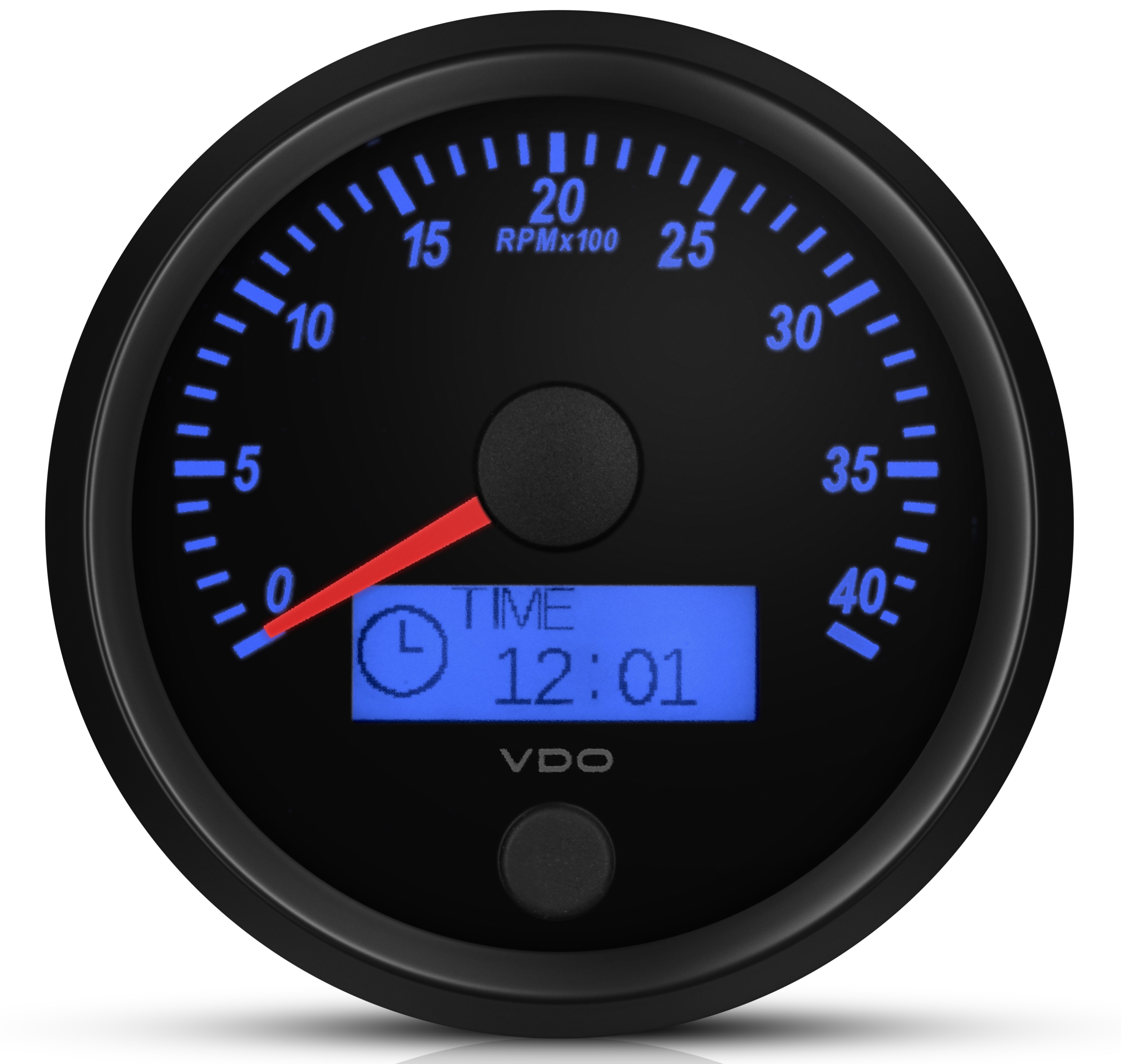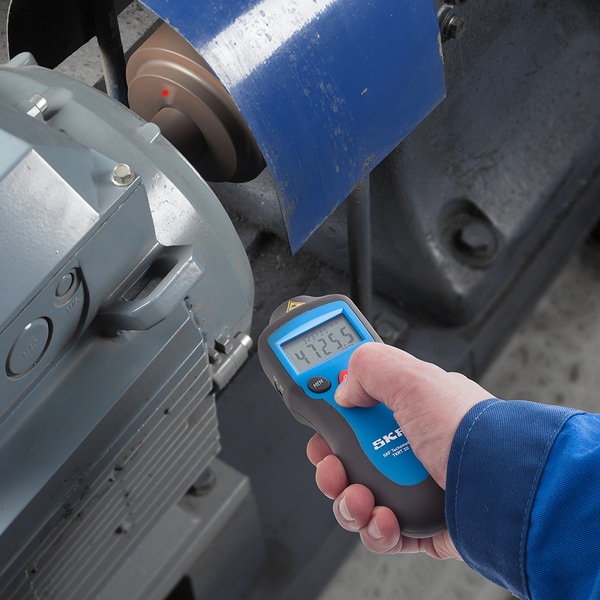Comprehensive Guide to Recognizing and Making Use Of a Tachometer Effectively
Comprehensive Guide to Recognizing and Making Use Of a Tachometer Effectively
Blog Article
Secret Factors Why Having a Tachometer Is Vital for Keeping Engine Health and Performance
In the realm of automobile upkeep, the significance of a tachometer can not be overstated - tachometer. This modest yet crucial instrument plays a crucial role in the upkeep of an engine's health and wellness and performance. By providing real-time data on engine speed and RPM degrees, a tachometer supplies indispensable understandings that straight impact the performance and durability of the engine. From stopping over-revving to maximizing gas consumption, the applications of a tachometer are multifaceted and necessary for any kind of lorry owner or enthusiast. Why is this seemingly simple device so important? Allow's check out the crucial factors behind its crucial duty in keeping engine wellness and performance.
Protecting Against Engine Over-Revving

To safeguard the engine from possible damages, it is vital to execute steps that prevent over-revving, a technique that can result in costly fixings and minimized engine life expectancy. Over-revving occurs when the engine's rotational rate exceeds the maximum restriction established by the producer, creating unnecessary tension on internal parts such as pistons, valves, and attaching rods. This too much stress can result in mechanical failings, including curved valves, harmed pistons, and even tragic engine failure.
One reliable measure to stop over-revving is the setup of a rev limiter. A rev limiter is a gadget that manages the optimum RPM (revolutions per minute) of the engine by either cutting off fuel circulation or stimulate to the engine when the pre-set limitation is gotten to. In addition, educating chauffeurs and operators on the relevance of monitoring engine RPM through the tachometer can help prevent unintended over-revving. Routine upkeep checks to ensure the engine remains in optimum condition can likewise assist in avoiding over-revving cases and prolonging the engine's life expectancy. By taking on these preventive procedures, the threat of engine damage because of over-revving can be dramatically decreased.
Maximizing Fuel Usage
Reliable gas intake plays a vital duty in taking full advantage of the efficiency and sustainability of an engine. tachometer. Optimizing fuel consumption not only helps in decreasing operational expenses however likewise decreases the ecological impact of car discharges. By using a tachometer to check engine rate and adjust driving routines appropriately, vehicle drivers can attain better fuel efficiency
Preserving a steady speed and preventing abrupt accelerations and slowdowns can substantially improve gas economy. Furthermore, correct equipment choice based upon the tachometer readings ensures that the engine operates within its optimal variety, causing more efficient fuel combustion.
Routinely keeping an eye on the tachometer can additionally assist determine any kind of inefficiencies or mechanical concerns that might be influencing gas intake. An abrupt boost in fuel use without an equivalent adjustment in driving behaviors might indicate a trouble that calls for interest.
Tracking Engine Health
Checking engine health is essential for making certain optimum performance and longevity of the car. By making use of a tachometer to keep why not look here track of engine speed, vehicle drivers can discover abnormalities that may show possible issues with the engine. A tachometer supplies real-time data on engine changes per minute (RPM), enabling motorists to determine any type of uncommon spikes or decrease in RPM that can signify troubles such as misfires, damaged parts, or engine getting too hot.

Routinely keeping track of engine health through using a tachometer enables drivers to resolve concerns without delay prior to they intensify and trigger significant damage. For instance, detecting a decline in RPM can suggest fuel check out here delivery troubles or a stopped up air filter, while a sudden rise in RPM might indicate problems with the transmission or exhaust system. By remaining attentive and receptive to adjustments in engine performance, motorists can avoid pricey repair work and ensure the general health and wellness and performance of their vehicle.
Expanding Engine Lifespan
Making certain the longevity of an engine calls for persistent upkeep practices and conscientious surveillance of essential efficiency indicators. Prolonging an engine's lifespan is critical for decreasing total vehicle maintenance prices and avoiding unforeseen breakdowns. A tachometer plays a considerable duty in this aspect by supplying real-time information on engine speed, permitting drivers and mechanics to make educated choices to stop extreme damage.

Furthermore, regular maintenance based on tachometer readings, such as prompt oil adjustments and trigger plug substitutes, can significantly add to expanding the engine's long life. Overall, incorporating a tachometer into news routine engine monitoring practices is important for preserving the engine's health and efficiency over the long-term.
Conserving Cash on Fixes
A tachometer helps in checking the engine's RPM (revolutions per min), enabling vehicle drivers to operate within the advised range. By remaining within these optimal RPM degrees, too much stress on the engine can be stayed clear of, minimizing the likelihood of expensive repairs due to exhausting the engine.
In addition, by utilizing the information from a tachometer to practice smooth velocity and deceleration, motorists can prolong the life expectancy of their vehicle's components, inevitably saving money on upkeep and replacements. Overall, the understandings given by a tachometer equip chauffeurs to make enlightened decisions that can prevent unneeded wear and tear on the engine, resulting in substantial cost savings over time.
Conclusion
Finally, a tachometer plays an important duty in maintaining engine health and wellness and performance by protecting against over-revving, enhancing fuel usage, checking engine health, extending engine lifespan, and conserving cash on fixings. It is an essential device for ensuring that the engine operates within safe limits and performs at its best, ultimately adding to the durability and general efficiency of the automobile.
Report this page